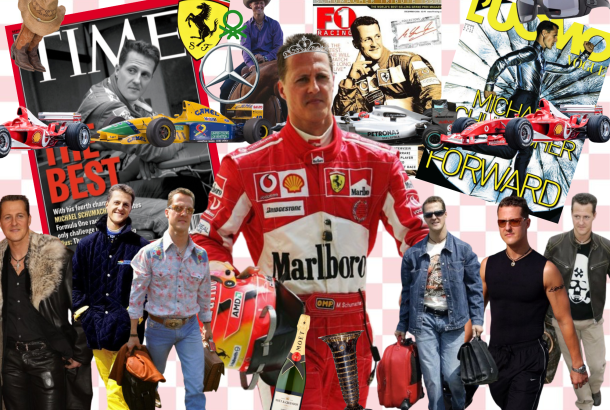Political Football
FIFA’s decision to prohibit England and Scotland players to wear black armbands emblazoned with a poppy because it would contravene rules banning political, religious or commercial messages on shirts has caused uproar.
Unsurprisingly, politicians quickly jumped on the bandwagon. Theresa May called the stance by world football’s governing body “utterly outrageous”. However, the poppy, for some, has become a tool to celebrate past British wars and attack those who do not wear a poppy. By the letter of football’s laws, FIFA are probably correct.
The FA and SFA have said publicly that they will ignore FIFA’s directive and wear the armbands, but what makes their indignation farcical is that the laws of the game are created by the International Football Association Board (IFAB), of which FIFA and the four Home Nations each command four of the eight votes. FIFA enforce the laws created by IFAB. In effect the FA and SFA will defy a ban on political messages that they themselves created.
A sensible, long-term solution would be to acknowledge that sports and politics do mix regularly and that the two fields can work together to affect positive change. Too often today, the actions of governing bodies, in conjunction with the rich and powerful, betray their words: They preach that sports and politics should not mix, while indulging those who want to exploit sports’ grandest competitions for their own purposes.
There is a simple reason why politics regularly exerts an influence on sport: sport is massively popular around the world. Russia’s hosting of the Winter Olympics and Qatar’s successful bid to host the World Cup in 2022 are two examples of states seeking to use sport for political purposes.
The cost of the Sochi games is widely agreed to have been extravagant. Some estimates put the cost at $50 billion. Why would Russia spend so much? And why would Putin appear at the games, as he will almost certainly do at the next World Cup, when he did not help to organise them? Because Russian politicians wanted to project to the world that it was a prosperous and successful nation, and Putin wanted to associate with that image and the Sochi games. He is not alone. Numerous political figures and royals have attended World Cup final matches, eager for the national goodwill that accompanies sporting success to extend to them.
Qatar is a tiny, yet extravagantly wealthy (for some) country. Hosting the World Cup gives the ruling royal family the chance to present their country to the world as a burgeoning centre of football and commercial excellence. They further that image by, for example, employing footballing icons such as Xavi and Pep Guardiola as ambassadors for the 2022 World Cup and buying PSG.
The Qatari establishment values those links to football, and the political worth that can be gained from it, enough to take the reputational damage it receives from harrowing reports by the likes of Amnesty International, which detail the brutal conditions migrant workers building the stadia for the World Cup are alleged to suffer, and exposés on the punitive Kalafa system, which prohibits migrant workers in Qatar from leaving the country without permission from their employer. But with FIFA’s refusal to act meaningfully on those reports or reprimand Qatar, it is not surprising that the country feels it is a risk worth taking.
In 2015 it was announced that the 2021 Athletics World Championships would be held in Eugene, Oregon. The American sports giant Nike was founded and are still partly based there, and that connection has led to questions about the bidding process. The IAAF revealed Eugene had been chosen after a surprise secret ballot. There was no open bidding process, which had happened before, when Osaka were awarded the 2007 championship.
Sebastian Coe, who became the president of the IAAF later in 2015, only resigned from a paid ambassadorial position with Nike after prolonged, intense media scrutiny concerning a potential conflict of interest once he had been appointed to his role. In 2015 French officials opened investigations into Lamine Diack, Coe’s predecessor, who presided over the secret vote to award the 2021 championships to Eugene, and his son, Papa Massata Diack, over alleged corruption charges, including Eugene’s bid to host the 2021 championships and Tokyo’s successful bid for the 2020 Olympics.
Nike had previously been embroiled in controversy when the US athlete Nick Symonds was not allowed to compete at the 2015 World Championships in Beijing because he refused to sign a contract, declared mandatory by US Track and Field for athletes competing in Beijing, to wear Nike clothing.
Even today, however, there are examples of sport unifying people and fighting bigotry. The success of fan-owned sides like AFC Wimbledon is testament to clubs that act with the fans’ best interests in mind. The wearing of rainbow laces is a small, yet visible statement that homophobia in football is unacceptable. Plus, while racism is still a significant problem in football, it would be a worse one if not for the tireless effort of organisations like Kick It Out and Football Against Racism in Europe, who have used the popularity of football to spread a message of inclusivity.
Sport has not been, and never will be, apolitical. Powerful people and corporations might like to say otherwise, but their actions demonstrate the exact opposite. But being political is not something to be ashamed of. Books, films, art, music and TV all demonstrate that incorporating political messages is not just possible, but that it can benefit society and the medium itself. Likewise, sport can use its popularity to promote acceptance and tolerance internationally, and it should embrace that responsibility.







